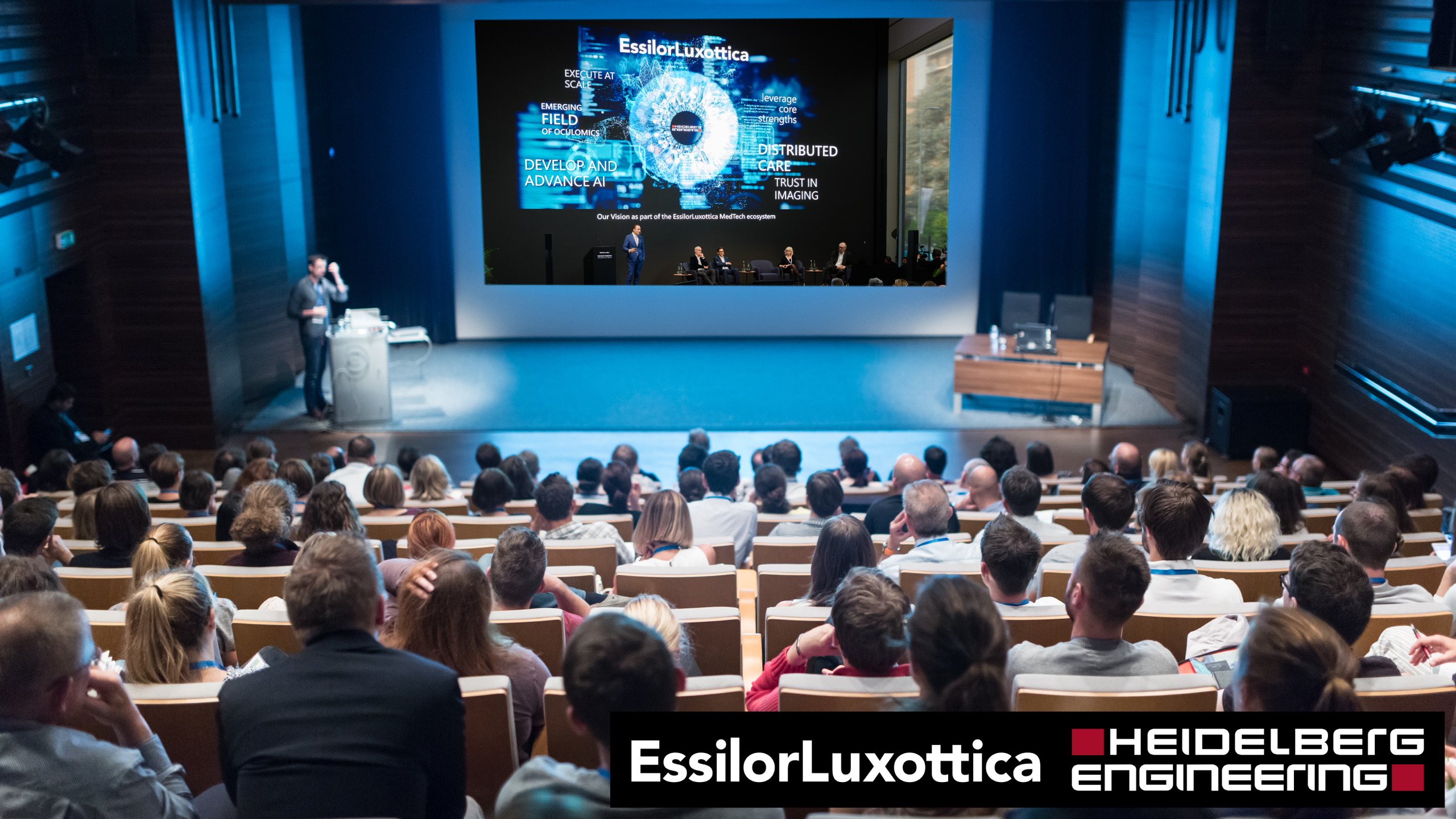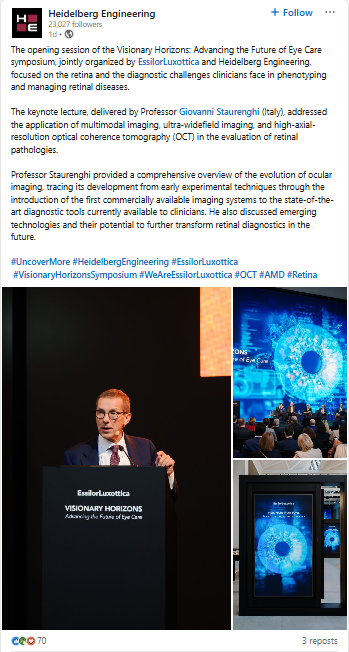From imaging to AI, the world’s leading experts met in Milan to reimagine the future of eye care.
Heidelberg Engineering, as a part of EssilorLuxottica, marked a milestone in global eye innovation with the first of its kind inaugural event, the Visionary Horizons symposium, an event which showcased the company’s growing role in advancing ophthalmic science and technology within the Group’s med-tech ecosystem.
The Visionary Horizons: Advancing the Future of EyeCare symposium was held on October 11, 2025 at the Tortona Experience Center in Milan, Italy. It brought together over 100 ophthalmologists, clinical scientists and researchers from 20 countries. The symposium served as the key platform for sharing expert insights, fostering collaboration and highlighting the developing innovations that could potentially change the next frontier of eye care in the world.
“No company can manage this revolution alone. We must unite to build new collaboration models. Working towards a new dimension, our aim is to create a vertically integrated med-tech platform for the eye, combining early diagnosis, treatments and ophthalmic surgery. With this integration of scientific research, innovation, AI, clinical data and practice, we will design new healthcare pathways beyond vision.” said Francesco Milleri, Chairman and CEO, EssilorLuxottica.
Shared commitment to innovation
As a cornerstone of EssilorLuxottica’s med-tech strategy, Heidelberg Engineering continues its legacy in diagnostic imaging, now strengthened by the Group’s scale and resources. Together, both of the companies aim to bridge research and clinical practice to advance imaging solutions, and AI-driven insights.
Furthermore, the symposium featured a scientific program divided into four key sessions, each considered major areas in ophthalmic care.
In the retinal diseases session, experts discussed the intricate patterns of retinal vasculature and the advancement in retinal diagnostics.
Secondly, optic neuropathies were heavily discussed in terms of early detection techniques and the integration of AI in detecting glaucoma.
On the anterior segment diseases-front, specialists highlighted developments in refractive and cataract surgery, including new implantable collamer lenses.
Lastly, the myopia session presentation explored early intervention strategies and the impact of myopia on retinal health.
Each segment discussion emphasized how emerging technologies–especially imaging and artificial intelligence–are reshaping how eye care professionals detect, interpret and respond to ocular diseases.
READ MORE: EssilorLuxottica Acquires Canadian Start-up Cellview Imaging
AI and the connected future of vision care
Artificial intelligence was a recurring theme throughout the Visionary Horizons symposium. For both Heidelberg Engineering and EssilorLuxottica, AI stands at the center of the next phase of eye care–where diagnostic imaging, data analytics and clinical decision-making can merge into one continuous process.
With smart systems, ophthalmologists could soon gain real-time insights into disease progression, predict outcomes and personalize treatment plans. In the long run, this could mean faster diagnoses, more efficient patient care and a stronger shift leading to preventive medicine.
READ MORE: AI in Ophthalmology: Maximizing Potential while Ensuring Data Safety
The key takeaway
The inaugural Visionary Horizon symposium stood as a clear statement that the future of ophthalmology will rely on a shared vision. It brought together minds not just to showcase innovations but to spark dialogues about how those innovations can improve in real-world outcomes.
Editor’s Note: This content is intended exclusively for healthcare professionals. It is not intended for the general public. Products or therapies discussed may not be registered or approved in all jurisdictions, including Singapore.

